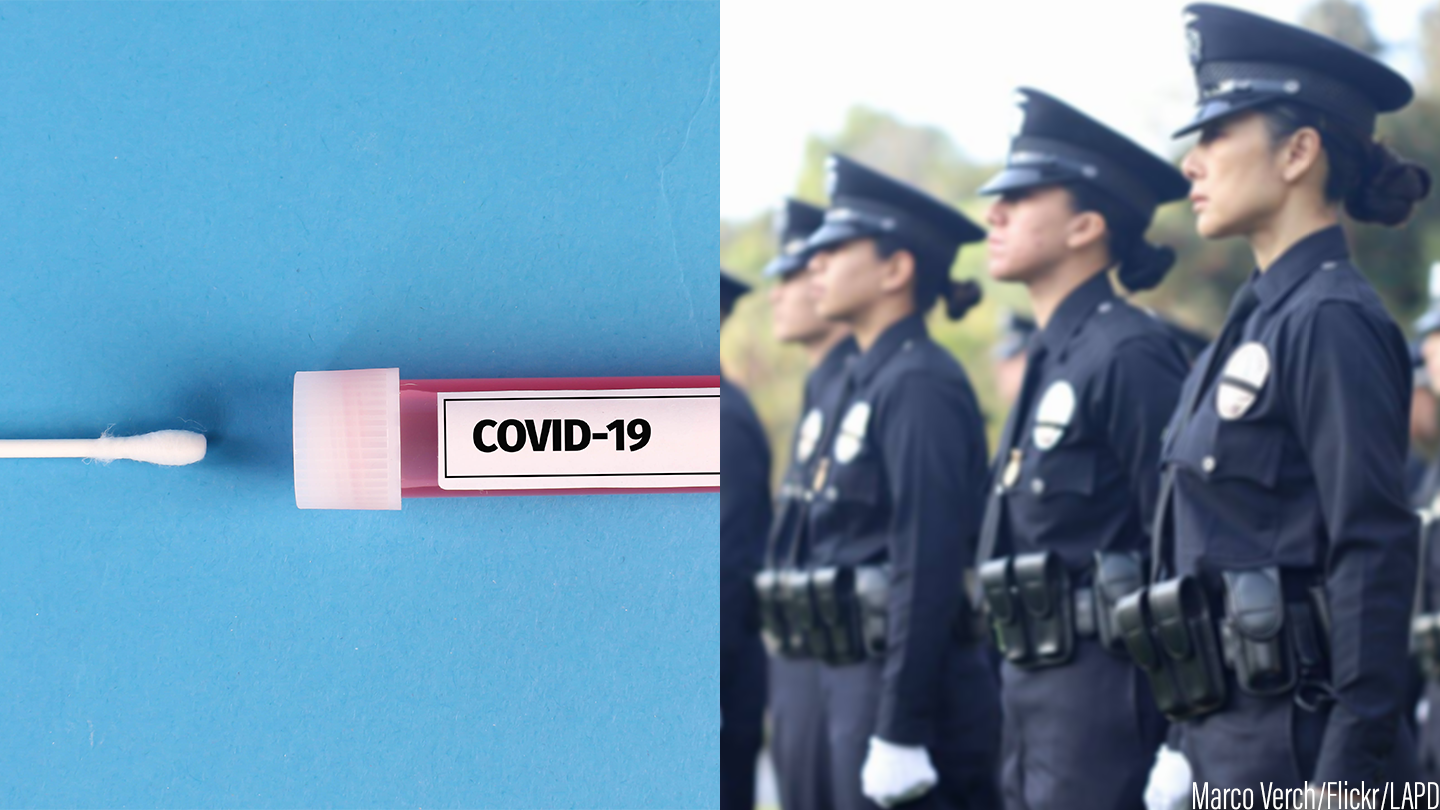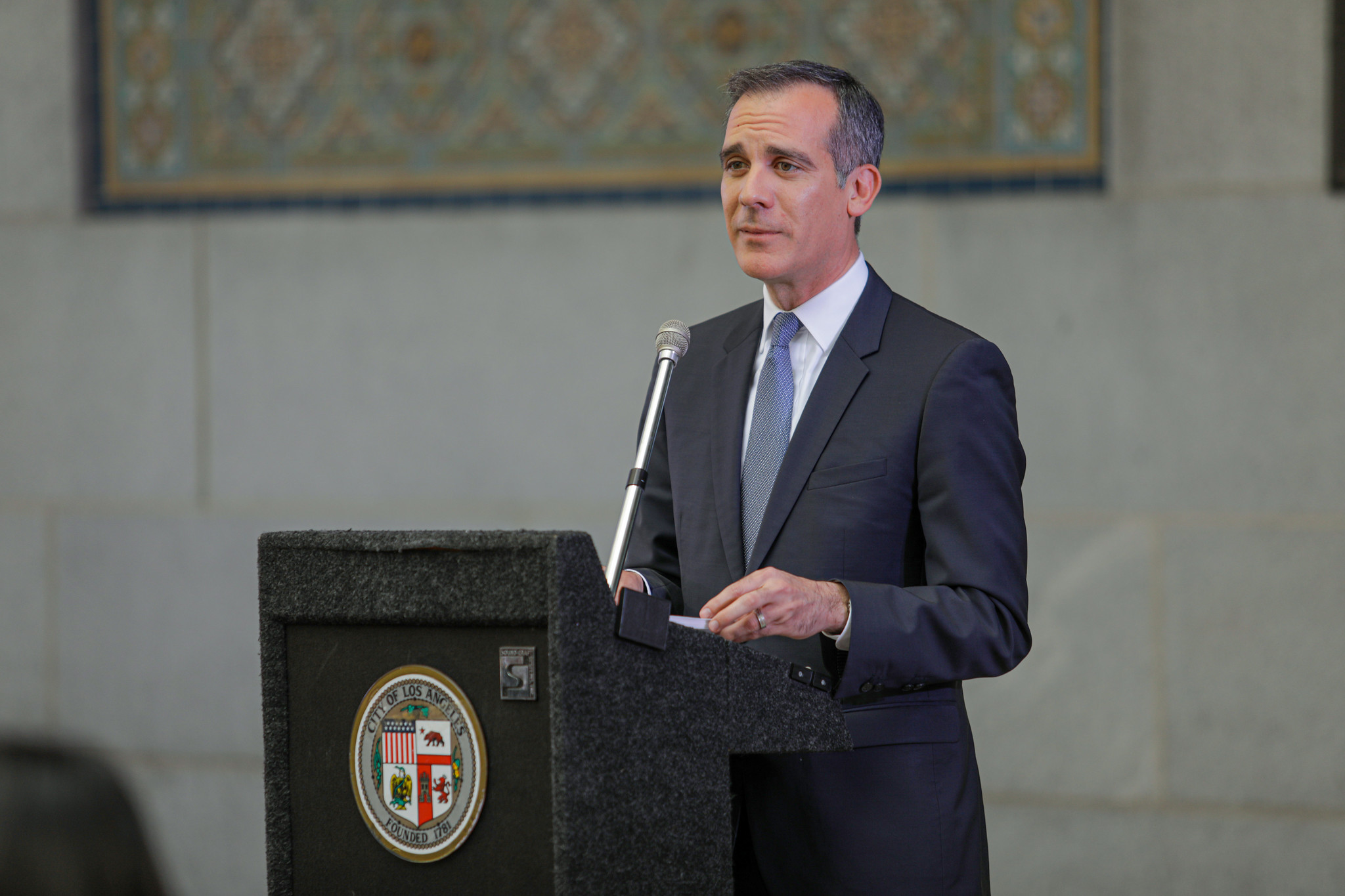A second former Los Angeles Department of Water and Power executive has agreed to plead guilty to a federal criminal charge in the ongoing probe of the city’s handling of the botched launch of a DWP billing system, federal prosecutors announced Monday.
David F. Alexander, 54, of Arcadia, will plead guilty in downtown Los Angeles on a date to be determined to a felony charge of making false statements. Alexander was DWP’s chief information security officer from May 2017 until February 2019, and then served as the department’s chief cyber risk officer for the next six months.
It was not immediately known if Alexander had retained counsel.
Last week, a former DWP general manager, David H. Wright, 62, of Riverside, agreed to plead guilty to a federal bribery charge in the case. On Nov. 29, Paul Paradis, 58, a New York attorney hired by the city, also agreed to plead guilty to a bribery count in the secret scheme to settle a major lawsuit brought against the utility on terms favorable to the city.
Alexander knew Paradis, who was representing DWP in a lawsuit against the vendor the utility blamed for the billing debacle. In 2017, Paradis created a downtown Los Angeles-based company known as Aventador Utility Solutions, which obtained a three-year, $30 million no-bid contract with DWP to perform remediation work on the faulty billing system. Aventador also performed certain cybersecurity-related work for DWP.
In March 2019, Paradis — who simultaneously represented a ratepayer suing DWP and the department itself — resigned as special counsel for DWP’s billing lawsuit and, later that month, allegedly sold Aventador to an employee. Aventador then changed its name to Ardent Cyber Solutions, and Paradis was to have no financial interest in or control over the Aventador or its successor company.
A month earlier, the Southern California Public Power Authority — a collective of 11 municipal utilities, including DWP — had issued a proposal request for a cybersecurity services contract at the behest of Wright, DWP’s then-general manager. Alexander, the proposal’s primary writer, was one of four members of the scoring committee for the power authority’s request. The committee was responsible for presenting its scores and recommendations to the SCPPA’s cybersecurity working group.
Alexander knew the process was intended to be a competitive, neutral and transparent, but manipulated the system with the goal of securing future cybersecurity work for Aventador, and, later, Ardent.
According to federal prosecutors, Alexander used his position as the DWP’s chief cyber risk officer and vice-chair of the SCPPA’s cyber security group to influence the makeup of the scoring committee to include people whom he could persuade to rank Ardent favorably.
After the cybersecurity group informed Ardent that it would recommend the company for the SCPPA contract, Alexander met with Paradis, who by that time was covertly cooperating with the FBI.
During the meeting, Alexander told the lawyer that he had used the SCPPA bidding process to get DWP’s “desired outcome,” that is, a contract with Ardent, but in a manner that falsely appeared “completely transparent.” Alexander also boasted that he was the one who had secured the contract for Ardent, informing Paradis, “that was me driving it,” according to court documents.
The SCPPA board approved a multi-award contract for Ardent and two other vendors valued at a total of $17 million. In June and July of 2019, Alexander further manipulated in Ardent’s favor a proposal process from DWP for the award of a three-year, $82.5 million cybersecurity consulting services contract.
Alexander later solicited and agreed to accept from Paradis a future job as the chief administrative officer of Ardent, a to-be-determined executive- level salary, a sign-on bonus, and recompense of $60,000 per year for 30 years for his early retirement penalty from DWP. Alexander did so intending to be influenced and rewarded in connection with his ongoing assistance in securing the award of a multimillion-dollar DWP contract to Ardent and use of his position to guarantee more than $10 million in future task orders for Ardent under the anticipated DWP contract.
On July 22, 2019, the FBI executed search warrants at DWP as part of its ongoing investigation into the department and the Los Angeles City Attorney’s Office. Two days later during a voluntary interview, Alexander lied to the FBI about his conversations and agreements with Paradis. Days later, Alexander met again with the FBI and again lied, falsely stating that he had declined any employment opportunity with Ardent and that he had never provided any guarantees to Ardent or Paradis.
Paradis has agreed to plead guilty to a bribery charge for accepting an illicit kickback of nearly $2.2 million for getting another attorney to purportedly represent his ratepayer client in a collusive lawsuit against DWP related to the billing debacle. Paradis is cooperating with the ongoing investigation into corruption at DWP and is expected to make his initial federal court appearance on Thursday.
Wright will plead guilty to a federal criminal charge for accepting bribes from Paradis in exchange for his official action to secure the $30 million no-bid contract for Aventador. His change-of-plea hearing is expected in the coming weeks.







